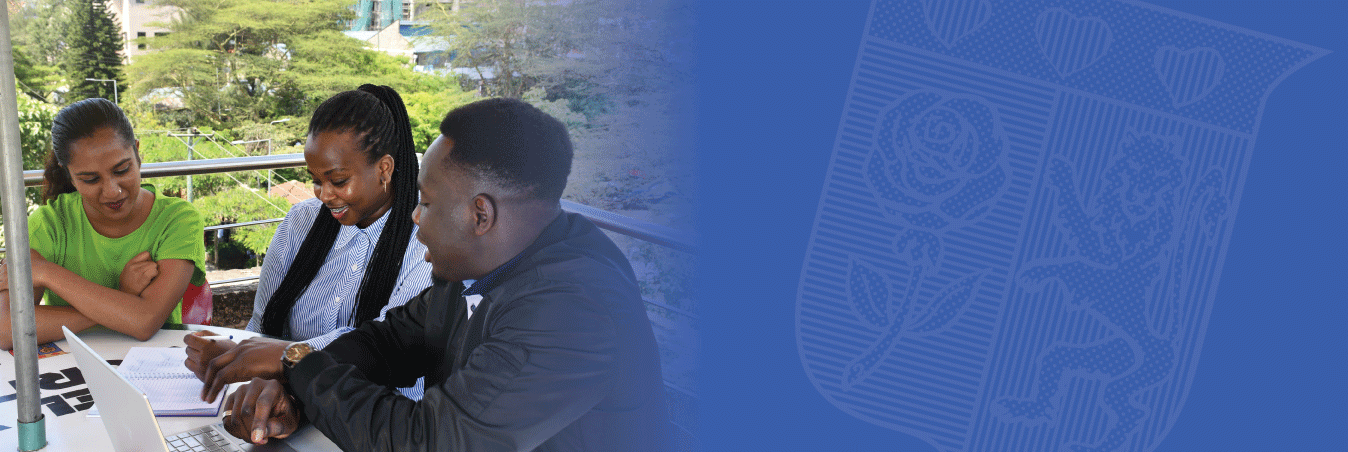We all know the blue metallic boxes used by boarders on the way to school, right? And if you’ve driven along Ngong Road, you know it’s a furniture palace with various ‘odds and ends’. If you’ve grown up in Kenya, then you know the artisan workers we call Jua Kali. The term was originally coined because these artisans work long hours under the scorching Nairobi sun. Jua Kali directly translates to Hot Sun. Recently however, as recently as last week, we had the opportunity to learn about the dual meaning of the term Jua Kali.
The School of Humanities and Social Sciences brought together an international group of students, staff, delegates and ambassadors for a public lecture titled ‘Prospects of African Economies Transformation’. The theme of the lecture, at first glance, may have sounded like a good dose of Piriton but it turned out to be a shot of caffeine. The guest lecturer, Prof Motoki Takahashi from Japan’s Kyoto University, kept it fun and informative. The whole room was hooked! So much so that the Ambassador of Japan to Kenya, H.E Okaniwa Ken, stayed to the very end despite other pressing engagements. We were honoured to host him, together with a delegation from the Japanese Embassy.
One thing stood out very clearly during Prof. Takahashi’s lecture; that despite differences in continent, culture and language, the people of Kenya and Japan do share similarities. For one, Japan has a long history of an artisan industry that is very similar to our own Jua Kali. There, they are known as Takumis. The Takumis of Japan fall into four major categories; the traditional artisans, the work place technicians, SME entrepreneurs and big business leaders.
Business is a core element that both countries share. Innovation and industrialization are trademarks of the Kenyan business scene. Looking at Japan, some of our SME’s today could be global manufacturing giants tomorrow. And why not? It’s where Japanese companies such as Panasonic, Honda and Toyota began – as small businesses founded by Takumis who had little to no higher education. And now, every car in front of you is a Toyota.
Relaxed, friendly and ready with a smile, it is no surprise that Prof. Takahashi has wide networks with artisans in the Jua Kali industry. He shared valuable insights into this informal sector and the ways in which it contributes to a future of economic prosperity. One piece of equipment really stood out to him. Designed and built locally, the Kenyan Ben Saw has increased quality and efficiency in the artisans’ work. “The ingenuity of the Kenyan Jua Kali world is reducing waste while improving quality”. Japan is one of the fastest growing economies in the world, and even they can learn something from our informal sector.
These were thoughts echoed during the live panel discussion following the lecture. The School of Humanities students were full of tough questions that truly challenged the panelists. With us was the Secretary General of the Kenya National Federation of Jua Kali Associations, the Deputy Director of University Education and members of the Strathmore Faculty. They discussed the history of the artisan sector in Japan, some of the practices we can adopt and the pitfalls we may find ourselves in on the road to development.
That brought the session back to the duality of the Jua Kali sector. Though it may be categorized as unskilled labor, the craft requires apprenticeship and years of refinement. The smooth refinement that comes with sharpening a knife to a point. Jua means sun, it also means ‘to know’. Kali means scorching, but it also means sharp. Jua Kali has the dual meaning of scorching sun or sharp knowledge. A revelation that Dr. Vincent Ogutu shared with those gathered for the lecture.
The event was organized in collaboration with the Japan International Cooperation Agency (JICA) Kenya office. While giving his closing remarks, Mr. Hajime, the Chief Representative of JICA Kenya, said that his dream of working in Kenya was to improve relations between the two countries through a better understanding of the language and culture. The lecture, and continued partnership with the School of Humanities and Social Sciences exposes students to the Japanese language and culture, effectively preparing them to be global citizens that can adapt foreign solutions to African problems.
We closed the event with tea, networking and a little unexpected rain.
This article was written by Celia Kinuthia.
What’s your story? We’d like to hear it. Contact us via communications@strathmore.edu

